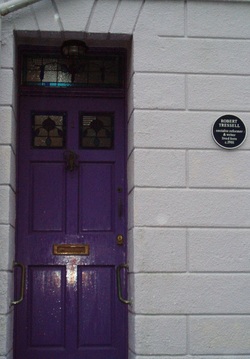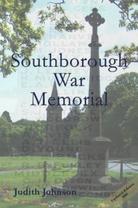 Robert Tressell's lodgings, West Hill, Hastings
Robert Tressell's lodgings, West Hill, Hastings books I often saw on bookshelves in the 1970s – but which, since I was living a fairly transient life, I never got round to reading. Recently I came by a copy and recommended that we read it in our local book group. I was really blown away by it, and it has coloured my thinking ever since.
It truly is an amazing achievement. The novel was written by Robert Noonan, while he was working as a signwriter for various building firms in Hastings, Sussex. He had been born and raised in Ireland, but came to England from South Africa at the turn of the 20th century. He used the pen-name Robert Tressell. You get a picture from the book of the terrible conditions in which he was working and living, and the mind boggles at the huge effort it must have taken to write this epic in his spare time. He wanted the book to be a ‘socialist documentary’ based on real people and events, and it’s obvious that he wanted it not only to be read but also to change people’s thinking. Tragically, he never saw this fine piece of work in print himself. After it was rejected by several publishers, he decided to emigrate to Canada in 1910. Sadly, he fell ill and died from tuberculosis in 1911, aged forty, before he could sail from Liverpool.
As a literary work, the book is sometimes repetitive, contrived and autodidactic, but to me these things pale into insignificance in the light of Robert Tressell’s white-hot passion to communicate his message: his portrayal of working men’s lives, and his belief in the possibility of changing things. As I was reading, I often thought of the men who would have
been living and working at this time, just before the First World War. I have read for example that many men who signed up for the War were often very pleased to be given regular meals, warm clothes and decent boots, so impoverished were their backgrounds. And some of the characters described in the book would have marched off in 1914 to join the ranks, just as the men on the Southborough War Memorial in my home town, such as
Frederick Somers, plumber, John Richard Rogers, decorator, and Charles James Scott, blacksmith at the High Brooms Brick & Tile Company.
At one point in the book Tressell describes a man who is found lying unconscious in the middle of a country road, and dies shortly thereafter of bronchitis and want of food. This recalled to me another Southborough World War One casualty, Thomas Handley, who died aged nineteen in the Hythe disaster in 1915. His mother had walked all the way from London to Tunbridge Wells in 1901 with her three children in a pram, to make a new home there. Her husband, a former railway porter, had died in the Boer War in 1900, and she was living on nine shillings and sixpence a week.
Tressell is unsparing in his vivid portraits of greed and opportunism in those of all classes, but the genuinely good men and women in his novel are predominantly working-class. Not until halfway through the book is there any mention of the middle classes in a positive light: “Others of these visiting ladies were middle-aged, unmarried women with small private incomes – some of them well-meaning, compassionate, gentle creatures who did this work because they sincerely desired to help others, and they knew of no better way.” I wonder if this description might have applied to the members of the Fabian Women’s Group, who recorded the daily budgets of thirty families in Lambeth living on about a pound a week, and in 1913 published this record in Round About a Pound a Week.
The town portrayed in The Ragged Trousered Philanthropists is named Mugsborough, but is widely acknowledged to be in reality Hastings. I lived in Hastings myself for two years in the early 1970s. I had left home at sixteen, and my first ‘digs’ was on the West Hill, just round the corner from Tressell’s lodgings. There was no heating, an outside toilet, and just one cold tap in our basement flat, and I used to go to the White Rock public baths for a hot bath
once a week. You handed over 50p to the attendant (decimalisation had just transformed the former charge of 10 shillings), and entered into a cubicle with high windows and a wooden slatted floor. A large plug was placed in the bath and hot water poured out of an outsize tap. Lovely! I always imagined that tramps and others with no hot running water available might have treated themselves to this in past times, and perhaps even Tressell himself, who knows?
For those unfortunates currently living on very little in Hastings, there is a local initiative for Christmas. I hope that it will bring some light and warmth into their lives. If you would like to send them something – you can find details at http://www.survivingchristmas.co.uk/

 RSS Feed
RSS Feed
